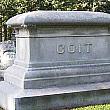Daniel Coit's Apprenticeship
by William C. Gilman
When he was about fifteen years old he and his sister Lydia and his brother Henry were sent to Mr. Hale's school at Lisbon; his parents, with the younger children, Maria, Eliza, and little Joshua, having removed to New York in consequence of his father's business engagements. Twelve months later he joined them, and after a few months with Gilbert and John Aspinwall, merchants and importers of dry goods, was formally indentured to them for a term of nearly five years, until he should attain his majority.
The indenture, signed and sealed by all the parties to it, bound his employers to teach him "the trade, art, and mystery of a merchant," he on his part, and his father for him, agreeing that "he shall of his own free will and accord his master faithfully serve, his secrets keep, and his lawful commands everywhere readily obey; shall not contract matrimony; shall refrain from vice, and from business on his own account; and in all things shall behave himself as a faithful apprentice ought to do during his term of service."
His only compensation was to be his board and washing. The theory was that the employer stood in the place of a parent to the apprentice, was interested in his welfare, and gave him special opportunities for advancement and improvement, with a commercial education that was a full equivalent for his services. By this system, now almost obsolete, he received a training that was invaluable in the important and complicated transactions in which he was concerned in later years. The art of writing a faultless business letter, acquired early in life, was an accomplishment in which he excelled.
The particular duties of the youngest clerk, as he describes them, were "to open the store at an early hour, to sweep and dust the floors, to make fires throughout the winter, and not infrequently to roll empty hogsheads and barrels through the streets for packing, and to shoulder and carry goods from one part of the city to another." If the hours were no more than sixty minutes long there were more working hours in twenty-four than there are now, and that work was often carried well into the night appears by letters to his parents, written when he was " so sleepy he could hardly keep his eyes open.”
He was desirous of acquiring a knowledge of the French language, and therefore changed his boarding-place to a family where it was spoken, but carried with him the kind interest of his landlady, who offered to continue to mend his clothes, "But," he says, "of course I shall not think of letting her."
If in the latter years of his apprenticeship, realizing that his knowledge and experience had become valuable, he impatiently looked for the day when he should earn something more than bread and butter and cease to be a burden on his father, he nevertheless fulfilled his contract to the end. He then engaged for a year as assistant with his friend and cousin, David Greene Hubbard, at a salary of $500, with the privilege of trading for himself: not an enormous income, indeed, but infinite riches compared with nothing.
Excerpted from A Memoir of Daniel Wadsworth Coit of Norwich, Connecticut, 1787—1876 by William C. Gilman, 1908.

 facebook
facebook



